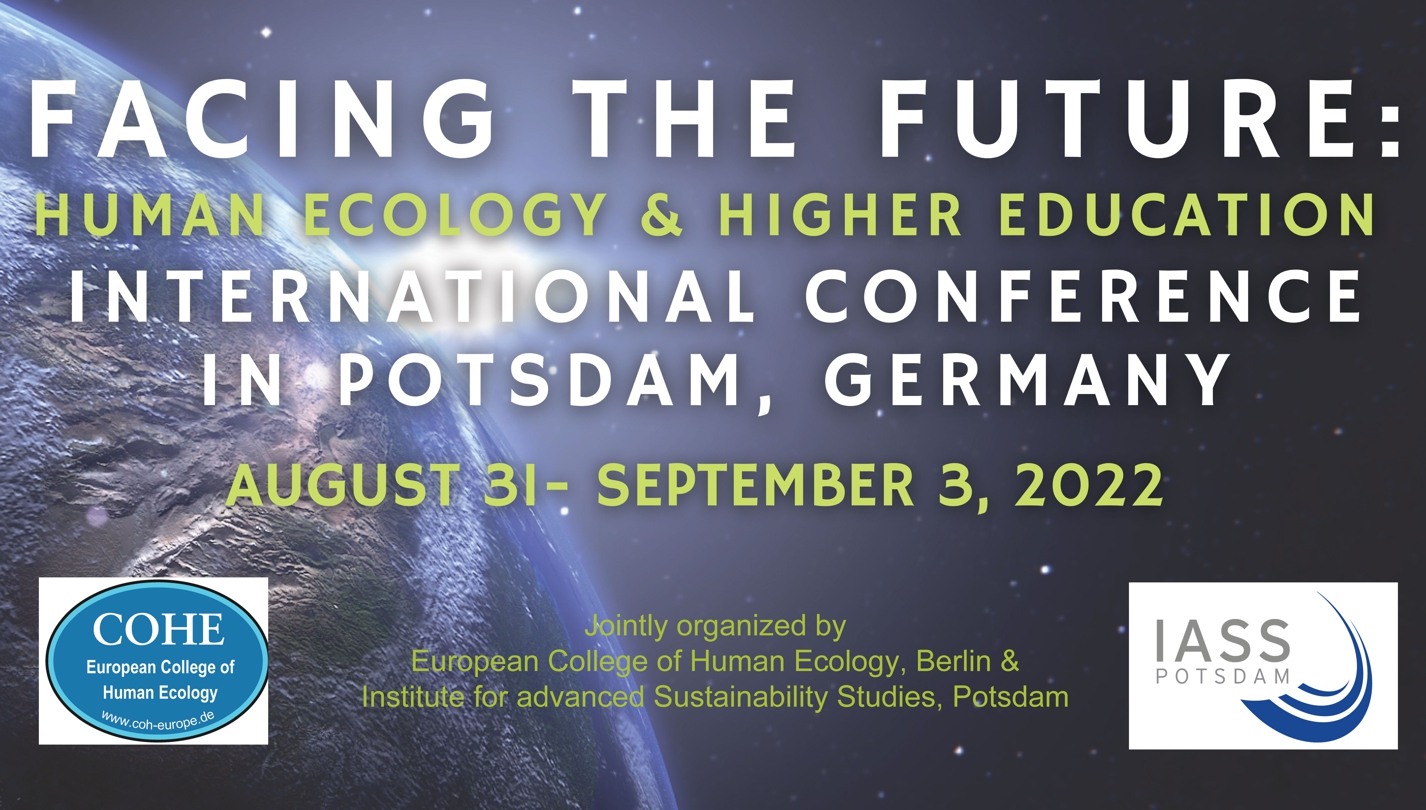- Category: Uncategorised
- Written by Super User
- Hits: 4300
Conference-Invitation 2022
Invitation
by Dieter Steiner
Climate change dominates the environmental discussion, but there are other processes as well that cause mankind to be on its way to a gray future. For example, the manufacture of material products (from concrete, bricks, asphalt, metals, gravel and sand as a bed for buildings and roads, wood, glass, plastic, etc.) is increasingly displacing the living environment. According to an Israeli study[1], compared to terrestrial biomass (dry weight), this »technomass« has increased from about 3% around 1900 to 100% in 2020 and continues to grow. Whether we will be able to counteract this trend in the near future will depend strongly on the quality of today's education. People will say this is in good shape, because we now have courses or whole programs in sustainable development at most universities. This is right and should be acknowledged, but it is not enough. It is not enough if the understanding of sustainable development is limited to ridding the effects of our forefront civilizational activities of their negative environmental impact while the ultimately causative structural background is being disregarded. To this background belongs the dogma of necessary economic growth, and of all things, in the 2030 agenda of the UN, this is one of the goals of sustainability!
Our civilization, which at present strives for a global homogeneity, must find a transformative way to »regenerative cultures«[2] representing a diversity owed to different socio-cultural and natural conditions. This requires a spiritual reorientation resulting in a change of mindset and worldview. Concretely, we should focus on the core of our existence, on the fact that we are ultimately a part of nature and accordingly are (or should be!) ecological beings. Here again it has a negative effect that the growing economization of our civilization over the last decades has taken hold also in the field of higher education. In Europe, this development has resulted in the controversial so-called Bologna Process. However, there is a growing chorus of voices criticizing this state of affairs. This includes human ecology, a scientific-philosophical perspective that bridges disciplines and is oriented toward a changed view of the world; it can look back on a hundred-year tradition that started in the USA.[3] It plays an important role in various places, but in Europe unfortunately only a shadowy existence. We hope that here our meeting will result in a correction.
The conference announced here takes place under the flag of this human ecology. However, all those are encouraged to participate who are not satisfied with the state of the present higher education, with its degree of adaptation to the planetary crisis, and who are therefore thinking about alternative, more encompassing approaches. The complexity of the environmental situation suggests that our considerations should start from the now familiar transdisciplinary realm, in which interdisciplinary connections and relationships transcending science become delineated. However, this basic situation is open to various extensions, amplifications, or clarifications. For example, it may be appropriate to include philosophical-ethical considerations in addition to the disciplines relevant to problem at hand. On the side of practical relevance, an intensification of cooperation with members of civil society, with companies and with public institutions may lead to new insights in the search for practicable paths to solve problems. This can result in a more intensive local reference, although the global dimension that is often involved must not be lost sight of. In addition to rational argumentation, emotional expressions should also have their place, and experiences of nature should help to find an empathetic approach to our natural environment.
Do your thoughts take a similar direction? Then we hope you will be encouraged to actively participate. We are looking forward to a valuable exchange of ideas!
Dieter Steiner, em. ETH-Zurich & COHE, January 2022
_____________
[1] Emily Elhacham et al. 2020. »Global human-made mass exceeds all living biomass.« In: Nature 588, 442-444.
[2] Daniel Christian Wahl 2016. Designing Regenerative Cultures. Triarchy Press, Axminster.
[3] Gerald L. Young 1983. Origins of Human Ecology. Hutchinson Ross, Stroudsberg.

